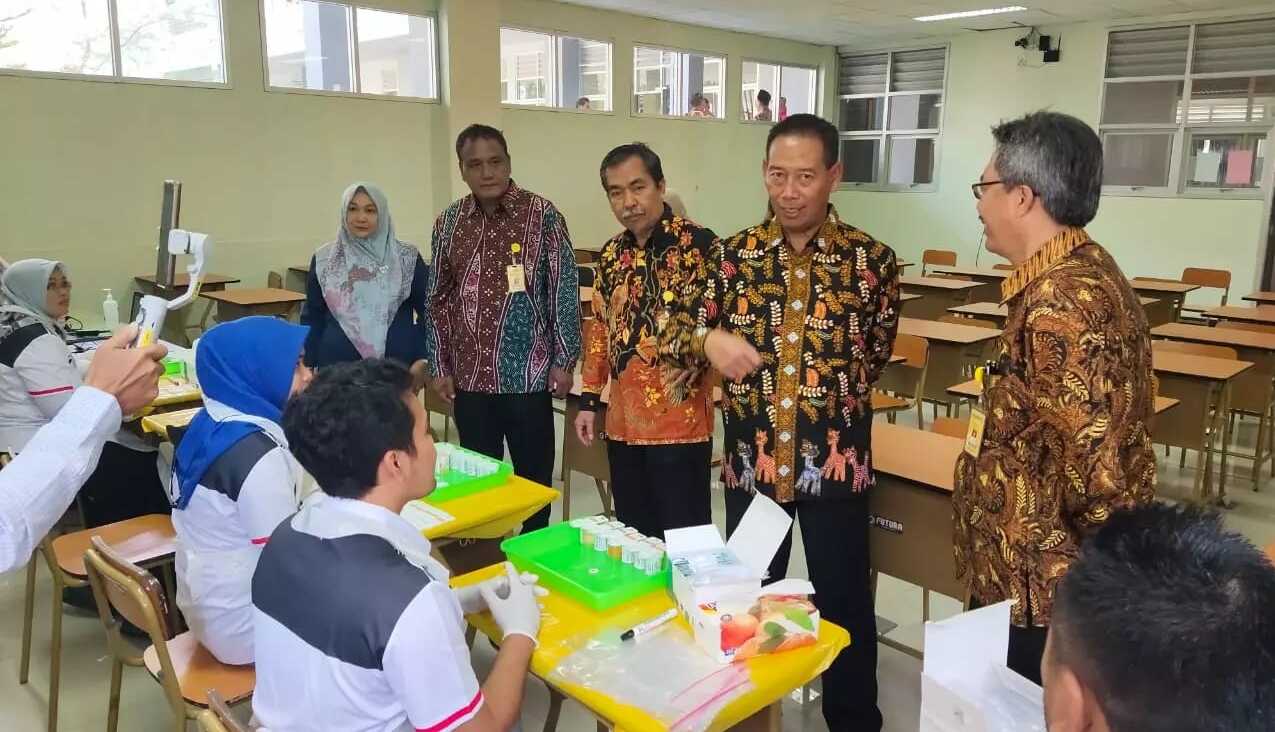Para lulusan Lembaga Pendidikan Tenaga Kependidikan (LPTK) diharapkan mampu mengimplementasikan kebijakan Kurikulum 2013. Di sekolah, mereka diharapkan dapat membantu para guru mengatasi berbagai kendala teknis terkait dengan kurikulum yang pelaksanaannya bakal dilakukan bertahap pada 2014-2015 itu.
Wakil Menteri Pendidikan dan Kebudayaan bidang Pendidikan, Prof Dr Musliar Kasim MS, mengatakan hal itu pada Workshop Pemantapan Filosofis dan Mindset Implementasi Kurikulum 2013, Sabtu (15/3), di auditorium Universitas Negeri Semarang (Unnes) kampus Sekaran, Gunungpati, Semarang.
“Kurikulum 2013 harus didukung oleh LPTK. Para lulusan yang telah menempuh pendidikan di jenjang ini harus memahami betul pelaksanaannya, sehingga ketika mengajar sudah tidak ditemui kendala berarti,” ujarnya, dihadapan Kepala Dinas Pendidikan Provinsi dan Kabupaten se-Jawa Tengah. Hadir dalam kesempatan itu, Staf Ahli Menteri Pendidikan dan Kebudayaan bidang Organisasi dan Manajemen, Prof Dr Abdullah Alkaff PhD, Rektor Unnes Prof Dr Fathur Rokhman MHum, serta Ketua Dewan Pendidikan Provinsi Jawa Tengah.
Musliar mengatakan, pemerintah terus berupaya agar Kurikulum 2013 dapat segera diimplementasikan. “Akan dilakukan secara bertahap dan menyeluruh dengan penekanan pada kerja sama pusat dan daerah, pelatihan guru, pendampingan, pengadaan buku, dan monitoring dan evaluasi,” kata dia.
Menurutnya, hal itu sejalan dengan apa yang ditekankan Wakil Presiden Boediono ketika membuka Rembuk Nasional Pendidikan dan Kebudayaan, belum lama ini. Ketika itu Wapres menginstruksikan dan mengajak kepada seluruh kepala dinas untuk mempersiapkan dengan baik pelaksanaan Kurikulum 2013.
“Pelaksanaan kurikulum ini memperoleh respon positif baik kalangan guru, orang tua, dan murid sehingga menjadi dorongan untuk menerapkan secara serentak di seluruh sekolah pada tahun 2014,” ujarnya.
Abdullah Alkaff mengatakan, Kurikulum 2013 menjawab kompetensi abad 21. Pada abad ini, menurutnya, kehidupan dan karier tidak hanya sebatas mengandalkan aspek produktivitas saja, melainkan juga sosial dan budaya, kepemimpinan dan tanggung jawab, juga kreativitas dan jiwa kritis.
“Kurikulum 2013 juga mengarahkan peserta didik supaya terampil dan terbuka pada media dan teknologi informasi. Hal itu membuat mereka melek pada informasi yang menjadi tuntutan ketika berhadapan dengan kehidupan dan karier,” katanya.
Materi workshop dapat diunduh di sini.

